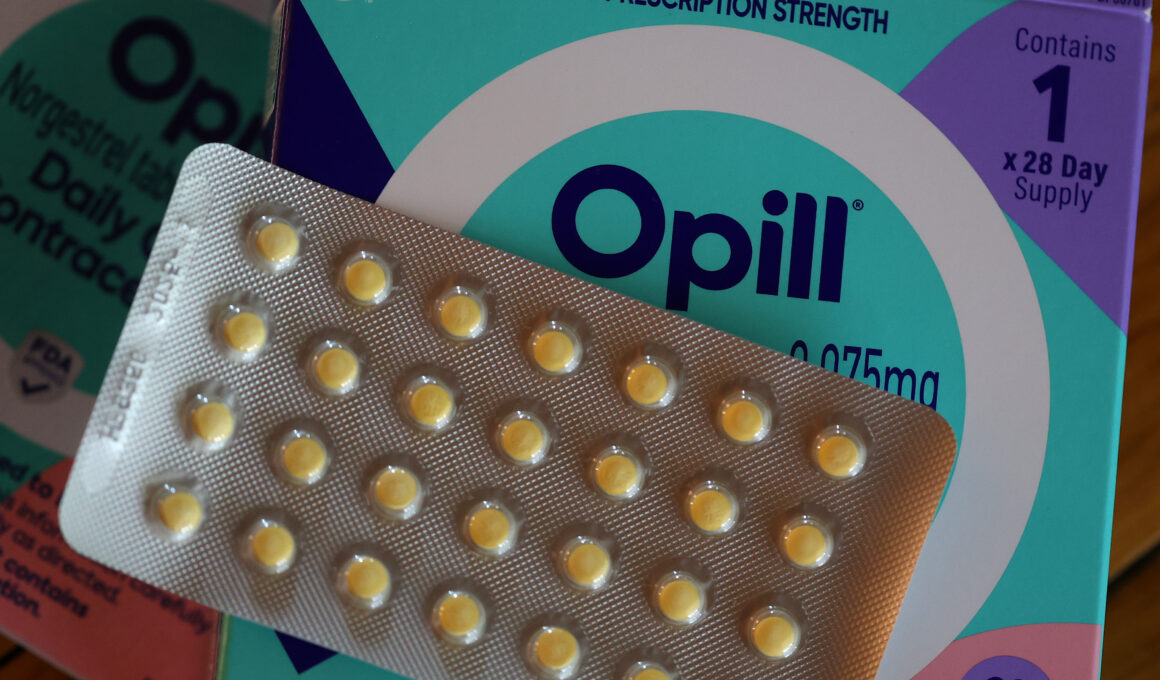North Carolina Medicaid recipients will now have access to over-the-counter (OTC) birth control pills at no cost, starting on Thursday.
In an effort to expand healthcare accessibility in the state, the oral contraceptive Opill will be available starting Thursday in over 300 local and retail pharmacies across the state without a prescription, at no cost for state Medicaid recipients, Democratic Governor Roy Cooper of North Carolina announced on Wednesday in conjunction with the North Carolina Department of Health and Human Services.
“North Carolina is working to expand access to healthcare and that includes the freedom to make decisions about family planning,” Cooper said in a press release. “Making birth control easier to get is an important goal and I’m glad that NC Medicaid can take this step.”
The coverage initiative stems from a 2021 law allowing pharmacists to prescribe various contraceptives in accordance with state medical regulations.
According to the Associated Press, North Carolina Medicaid began enlisting pharmacists as providers in early 2024, with the state officially unveiling the Medicaid benefit two weeks ago.
Opill, the first OTC oral contraceptive approved by federal drug regulators, is expected to alleviate cost and access barriers through this initiative, particularly in rural areas where there are fewer healthcare providers, according to state Health and Human Services.
“This new coverage by NC Medicaid demonstrates our commitment to continue to remove barriers to contraception and ensure North Carolinians have access to the services they need to make the best decisions about their health and life,” State Health Director and Chief Medical Officer Dr. Elizabeth Cuervo Tilson said.
Newsweek has reached out to Cooper’s office and the North Carolina Department of Health and Human Services via email for comment.
In addition, under this initiative, Medicaid-enrolled pharmacies will be able to submit reimbursement claims for birth control pills.
This comes as the state’s Medicaid program serves nearly 3 million residents, with women comprising 56 percent of the enrollees, the AP reported.
“Our goal is to ensure everyone has access to the right contraception and reproductive services at the right time in their community,” NC Health and Human Services Secretary Kody H. Kinsley said in a press release. “This new coverage is part of our ongoing work to invest in child and family well-being by increasing access to health care and ultimately improving maternal and infant outcomes.”
In addition, earlier this month over 500,000 North Carolinians enrolled in the state’s Medicaid expansion program since the program began seven months ago, according to Copper’s office.
According to Cooper’s office, since December 1, 2023, new Medicaid enrollees have filled more than 1.9 million new prescriptions for conditions like heart health, diabetes, seizures and other illnesses.
Meanwhile, the state’s OTC birth control initiative comes after the Supreme Court‘s decision to overturn Roe v. Wade in 2022 escalated concerns over the security of other reproductive rights, including access to contraception.
Last month, the Right to Contraception Act, introduced in 2022 and aimed to enshrine into federal law the right to obtain and use contraceptives, was blocked by Senate Republicans in a 51-39 vote, arguing it was unnecessary and overly broad.
The bill needed 60 votes to defeat a filibuster and move forward in the chambers.
If later approved, the Right to Contraception Act would ensure individuals could access various forms of birth control, such as pills, patches, impacts, condoms, IUDs and sterilization procedures.
Senate Majority Leader Chuck Schumer of New York warned last month of Republican efforts in some states to block access to contraception, saying it was “all the more reason to move to protect contraception at the federal level.”
“To those who think that federal action protecting access to birth control is unnecessary, just look at what’s happening in states like Virginia and Nevada and Arizona, where Republicans are openly blocking these very protections. I would hope that protecting access to birth control would be the definition of an easy, uncontroversial decision here in the Senate. But the vote will tell all,” Schumer said.
Meanwhile, on the Senate floor last month, Republican Senator Katie Britt of Alabama condemned the Democrats‘ legislation efforts as a “summer of scare tactics.”
“This is continuing the campaign of fear-mongering we’ve already seen. Contraception is available in every state across the nation. The goal of my Democratic colleagues right now is to scare the American people, to scare women across our great nation. It’s not that they believe that there’s a problem they’re truly trying to solve. They’re prioritizing their own short-term partisan political interest,” Britt said.
Uncommon Knowledge
Newsweek is committed to challenging conventional wisdom and finding connections in the search for common ground.
Newsweek is committed to challenging conventional wisdom and finding connections in the search for common ground.








